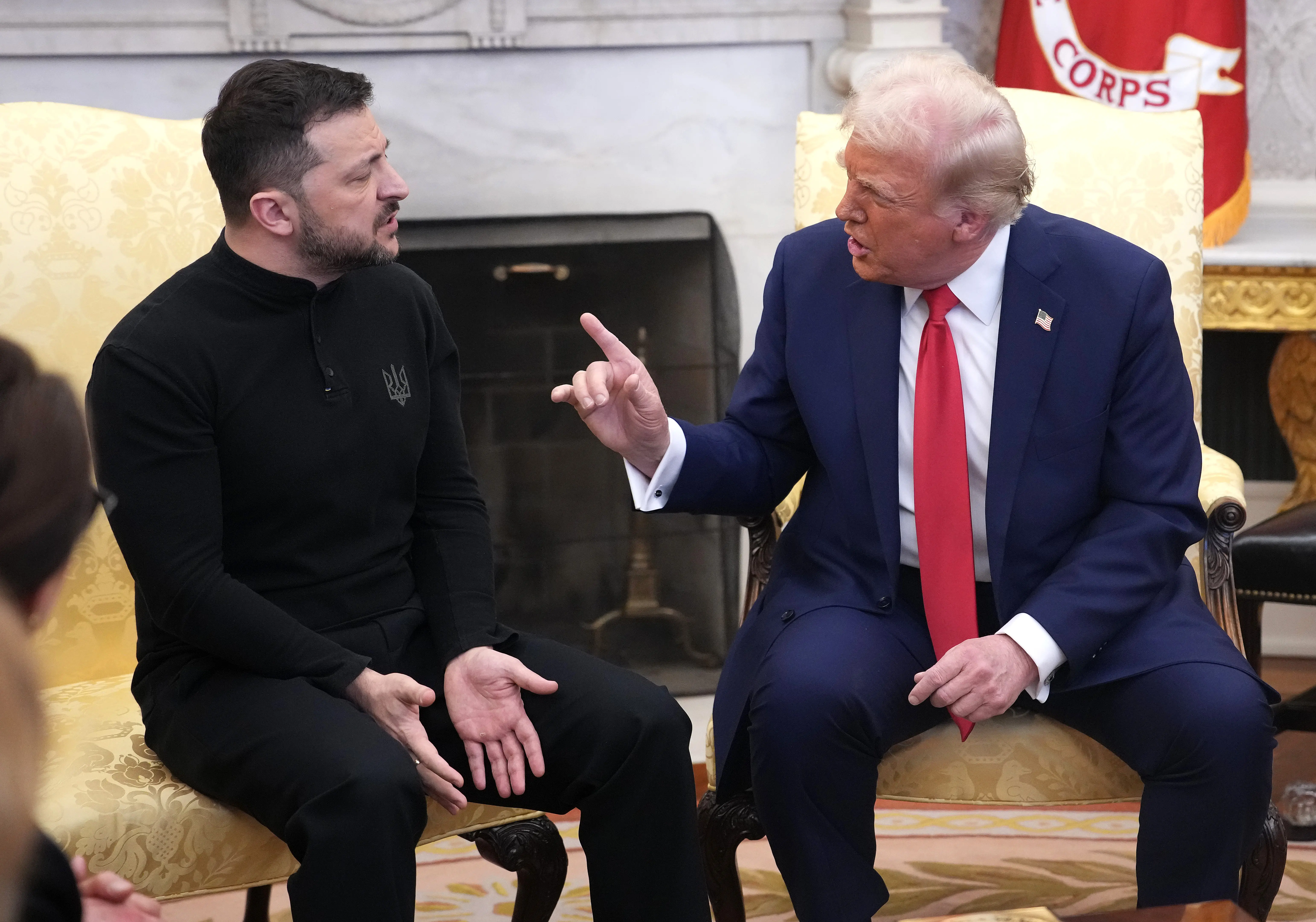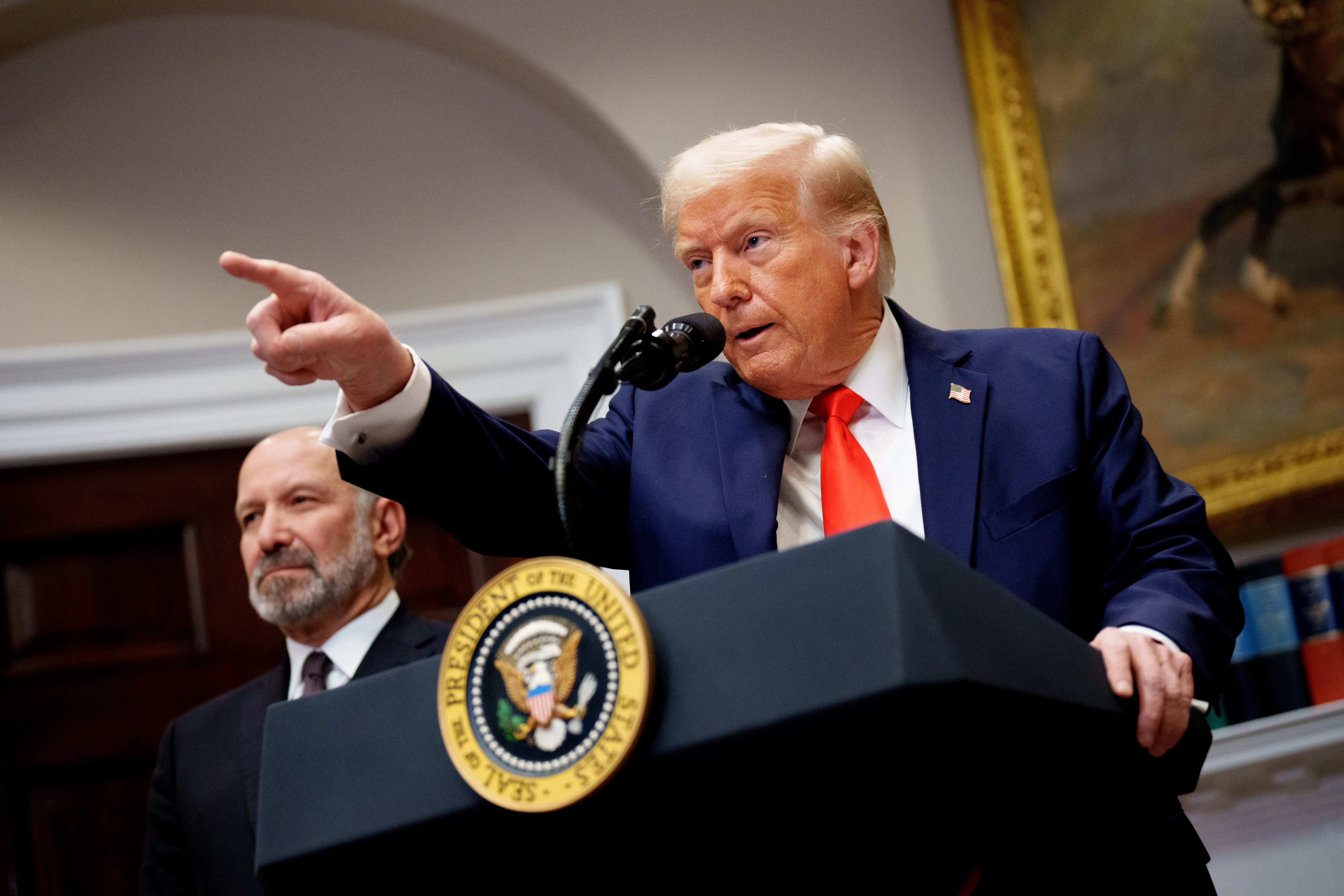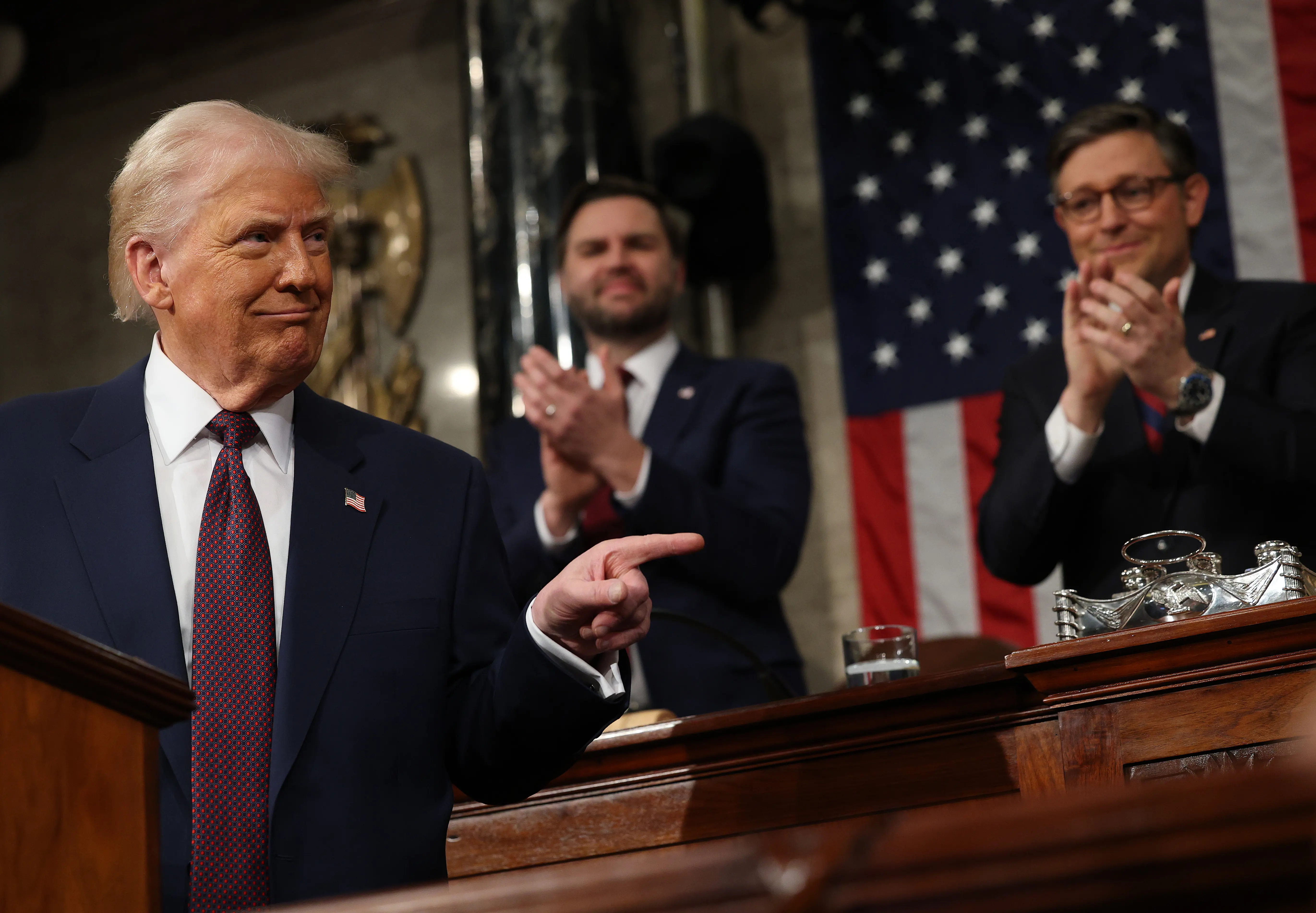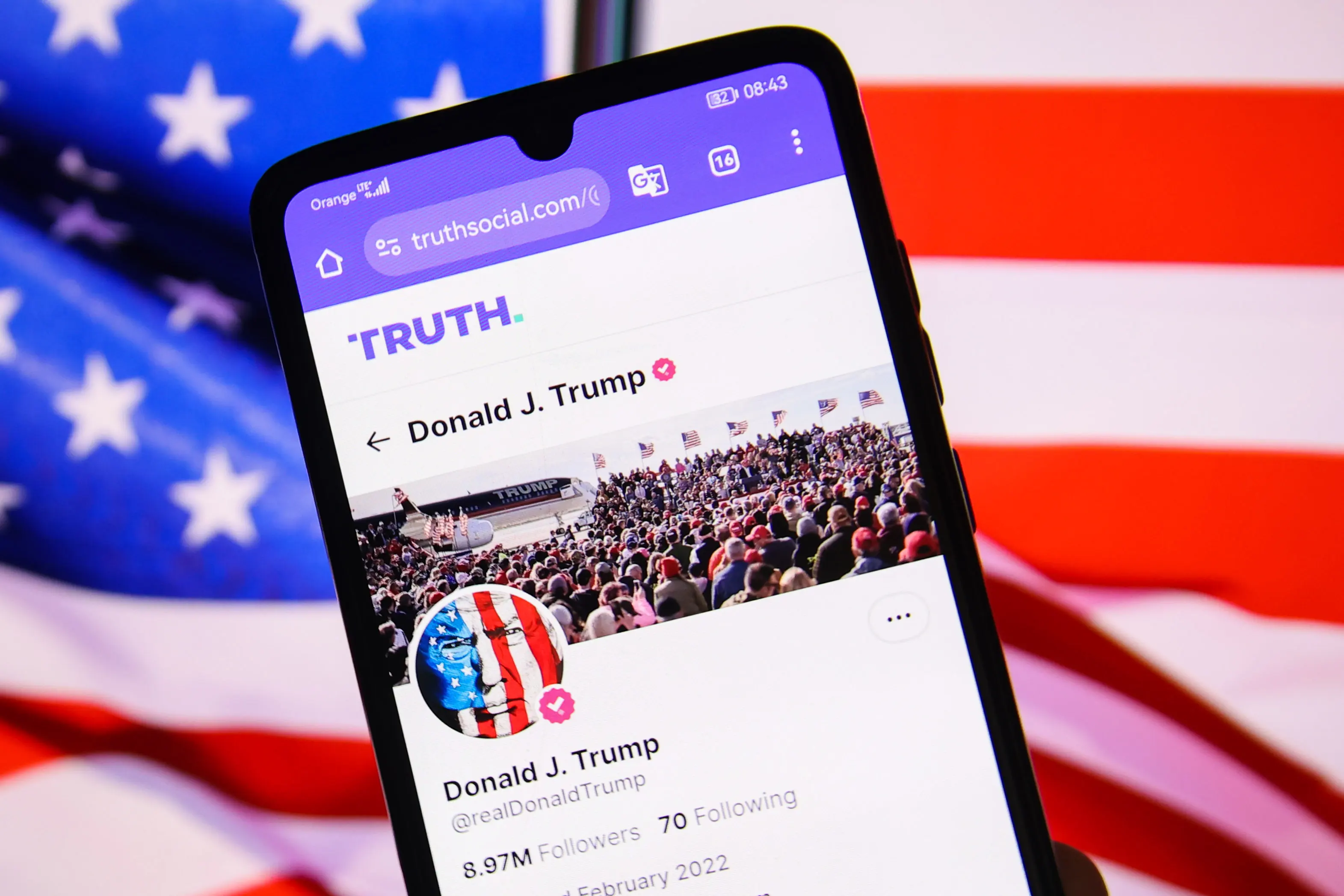
Discussion & Debate
‘I am watching the US enthusiastically leap into an authoritarian regime’

Making sense of Donald Trump’s self-obsessed talk through anthropological approaches to political rhetoric
Published 11 March 2025
“I gave you javelins. I gave you the javelins to take out all those tanks. Obama gave you sheets.”
– Donald Trump, 28 Feb 2025.
Of all the shocking utterances during the US president’s press conference with Ukrainian President Volodymyr Zelenskyy, this was the one that got my attention.

The facts are Donald J Trump did not gift Lockheed Martin-designed, shoulder-fired anti-armour weapons to Volodymyr Zelenskyy. The Trump administration approved the sale of these weapons to Ukraine in 2017, apparently after it was convinced the sale was good for US business.
When Zelenskyy raised Ukraine’s desire to buy more weapons in 2019, Trump used the opportunity to push him to investigate Hunter Biden.
The sale of the javelins featured in Trump’s first impeachment hearing, which is perhaps why he remembered them (having forgotten, apparently, about AUKUS).
The non-lethal support approved under the Obama administration was not just ‘sheets’, it included Humvees, radar, patrol boats, body armour and other essential defence equipment.
And while the javelins certainly helped to turn back Russian tanks in 2022, University of Melbourne historian Professor Mark Edele observed that most of the damage was done by Ukraine-made artillery and modernised Soviet-era tanks.

Discussion & Debate
‘I am watching the US enthusiastically leap into an authoritarian regime’
But, after four years and five long weeks of Trump holding the office of presidency of the US, no one should be surprised by exaggerations, distortions or brazen lies.
What gave me pause was the use of the word ‘I’.
As an anthropologist with a linguistic bent, I am interested in the ways that leaders represent themselves and the people they lead in the ways they talk.
Consider, for example, the ‘royal we’: from the medieval era to the early twentieth century, European monarchs and popes referred to themselves in writing and official address by the first-person plural pronoun (‘we’ or an equivalent) rather that the first-person singular (‘I’).
They spoke not as an individual but a collective.

In European political theology, the monarch is seen to have ‘two bodies’ – the natural body that dies, and the metaphysical body – of the kingdom – that endures.
Variations on this in political rhetoric occur all around the world. Anthropologists working in the Pacific, for example, have tracked the ways leaders narrate events that occurred generations ago in the first person; so ‘I’ refers not only to the speaker but also their ancestors, family group or kingdom.
But none of this helps make sense of Trump.
He rarely speaks in ways that encompass the broader polity – note that “I gave you javelins” was followed by petty bickering with his immediate and distant predecessors, including mention of one from his own political party.

Business & Economics
Trump, tariffs and the implications for Australian supply chains
This is not an ‘I’ expanded to a ‘we’ (with the ‘we the people’ reciprocally seeing ourselves in the singular person of the leader).
Trump is only ‘me, me, me’.
Where, then, does the authority of this ‘Toddler in Chief’ (as he’s been called in a recent book) come from?
For decades, I have talked to undergraduate students about political symbolism, exploring how leaders come to stand for a social group and exert power through this representation.
In fact, this topic was a core focus of the founders of social science. Nineteenth century French sociologist Emile Durkheim suggested that objects or persons became sacred when they represented society as a whole.

Rituals involving these symbols evoke a sense of “collective effervescence” – a feeling of having power that goes beyond the individual, an experience of being part of a larger whole.
This isn’t restricted to religion. It’s a dynamic that’s evident in phenomena like sports fandom, nationalism and social movements.
Durkheim’s German contemporary Max Weber focused more directly on political authority. He asked why people accept domination when it is not accompanied by direct force.
Some authority is accepted because it is traditional.
In a monarchy, for example, power is inherited and justified through appeal to age-old or sacred rules. Another type is legal-rational authority, where rulers and ruled alike follow laws within institutions of government.

Politics & Society
Trump’s victory will recast American politics in his own image
Both kinds are evident in concepts like “the dignity of the office of the President of the United States”.
Weber also wrote of charismatic authority. This is derived from the personal, emotional connection that followers experience with a leader whose power seems to emanate from beyond the ordinary world.
Charismatic authority can overturn precedent and transform institutions. It can sweep followers up in something larger than themselves, both led and embodied by their leader.
But even the MAGA ‘faithful’ don’t fully identify with Trump.
During election rallies, some were so bored that they left. Even the denizens of Truth Social (the social media platform launched by Trump media in 2022) are appalled by the blatant expressions of megalomania.

Some Trump voters in my wider family and acquaintances who are willing to talk politics – many from my hometown in Erie County, Pennsylvania (a bellwether county in a swing state) – admit that they don’t really like the guy. That “he’s an asshole.”
American philosopher Aaron James has written a whole book about ‘assholes’ – characterising them as people who allow themselves special advantages, have an enriched sense of entitlement, and boost themselves up by attacking the less powerful.
We don’t need a theory of charisma to explain Trump’s election.
He came to power not riding a wave of enthusiasm, but with less than one-third of the support of eligible US voters through a winner-takes-all voting method within an electoral college system that systematically overrepresents minority views.
Among the more compelling arguments for why millions of people did see Trump as a reasonable alternative links it to the culture of American workplaces, which “teaches employees that arbitrary rule is normal and that democracy is a deception and a lie.”

Politics & Society
8 reasons not to be afraid of President Trump 2.0
And, we might add, teaches them that the assholes of the world are the winners.
The asshole is the very opposite of the charismatic leader. They belittle rather than enlarge others.
True to style, Trump ended his exchange by berating a leader widely praised for moral and physical courage: “The problem is I’ve empowered you to be a tough guy, and I don’t think you’d be a tough guy without the United States.”
Rather than expanding himself to speak on behalf of the country, Trump reduces the United States to his own bluster.